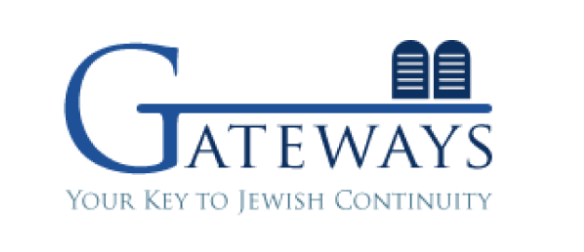Lifelock Vs TrustedID
By Puripong Koomsin
Each year, the cost of Identity Theft amounts to over 50 Million US Dollars and these numbers are steadily rising. Identity theft has been one of the most expensive crimes in the United States, costing both the government and individuals such a huge amount of money. Even though the crime is rising in numbers, most people still think that it may just be a result of isolated cases that have been blown out of proportion by the government and agencies that tend to gain from them.
That may seem like a convenient reality, in which one does not have to face the facts that everyday, a significant number of Americans are affected by Identity Theft all over the country. With cases and awareness growing, more and more firms offering protecting against identity theft are also popping up. Two firms that offer Identity Theft Protection Services are Lifelock and TrustedID. These firms claim to help their clients by informing them once their credits have been breached. So, how is each one different from the other? How does a prospective client know which firm is best for him?
Lifelock is a company that is based in Arizona. They offer their services for a monthly fee of $10 and an annual fee of $110. This company protects their clients by setting up fraud alerts with their client's creditors as well as removes a client's name from the mailing lists of pre-approved credit cards and junk mail. The company has become controversial in a way because of on one of their ads, CEO Todd Davis gives out his Social Security Number claiming that he is confident on how Lifelock works. Such an action has resulted in his number being hit several times by pranksters trying to prove that the Lifelock system is not as fool proof as they advertise it to be. In one scenario, a fraudster was able to solicit $500 from a credit company that did not check with Davis' credit history. This resulted in a blow for the company, but they claim that they have recovered and still have the clients that they used to and even more.
Another firm that is in the Identity Theft protection business is that of TrustedID. Unlike Lifelock, TrustedID takes a more curt approach when it comes to dealing with new accounts in their client's name. Instead of a simple monitoring of the account, TrustedID proceeds to freeze a client's account until the client verifies the fact that the new set up is valid or not. Like Lifelock, TrustedID also offers to remove a client's name from junk mailing lists. The company charges it clients $12.95 a month for their services.
So which is better: Lifelock or TrustedID? The answer to such query solely depends on the consumer. The two agencies work on a similar field with only a slight difference when it comes to the way they deal with breaches and new accounts instituted in a client's name. But, no matter what a firm may offer, an individual does not have to pay extra for the credit protection. The solution to that is for credit card agencies to make their process of freezing as well as unfreezing accounts easier for their users. This way, a client may be able to protect himself against Identity Fraud without using the services of any Identity Theft Protection agencies.
The writer of the above article is comparing services offered by two companies to which a consumer pays an on-going fee and the company provides a service for the consumer which is either free to do on their own or upon paying a moderate fee, can be implemented without too much effort.
Both companies are literally banking their money on the back of the Fair and Accurate Credit Transactions Act, (FACTA) which was an amendment to the Fair Credit Reporting Act (FCRA).
15 U.S.C. § 1681
§ 605A. Identity theft prevention; fraud alerts and active duty alerts
(a)One-call Fraud Alerts
(1)Initial alerts. Upon the direct request of a consumer, or an individual acting on behalf of or as a personal representative of a consumer, who asserts in good faith a suspicion that the consumer has been or is about to become a victim of fraud or related crime, including identity theft, a consumer reporting agency described in section 603(p) that maintains a file on the consumer and has received appropriate proof of the identity of the requester shall--
(A)include a fraud alert in the file of that consumer, and also provide that alert along with any credit score generated in using that file, for a period of not less than 90 days, beginning on the date of such request, unless the consumer or such representative requests that such fraud alert be removed before the end of such period, and the agency has received appropriate proof of the identity of the requester for such purpose; and
(B)refer the information regarding the fraud alert under this paragraph to each of the other consumer reporting agencies described in section 603(p), in accordance with procedures developed under section 621(f).
The credit repositories, Equifax, Trans Union, and Experian are required by federal law to place a "fraud alert" on a consumer's credit file for no less than 90 days for free for as long as the consumer wishes to retain them. The fraud alert is placed by calling one of the credit bureaus at:
Equifax
888-766-0008
Experian
888-397-3742
TransUnion
800-680-7289
For most people, one call is enough to activate the alerts at all three credit bureaus. Exceptions would be people who have moved recently, have changed a piece of identity recently, (name or SSN) or alternate between a PO Box and other address.
The only catch is for the consumer to call every 90 days to renew the alerts. In addition to the alert statement being placed on the credit report, the alerts entitle a consumer to a free credit report. Reports are limited to two every 12 months. However, a carefully planned credit screening schedule could be arranged so that the consumer requests one report every two months. Add to this the annual credit report disclosure which gives a consumer one free report per 12 months from each bureau and a consumer can have up to nine (9) free credit reports per year! A schedule such as this, while not perfect is pretty effective to determine whether or not an identity theft attack is underway. Credit monitoring would be the best way to watch the credit reports but most effective when it is triple bureau monitoring.
Having said all that, new account related identity theft is only between 25%-30% of all identity theft, with utility and telecommunication based identity theft picking up a sizable amount of the difference. Medical, employment and criminal identity theft also add to the total. Most of these types of fraud are not prevented by the presence of fraud alerts on a credit report. Both of the above companies stake their business on managing the fraud alert process for consumers and therefore a consumer should not go to bed at night thinking that Lifelock or TrustedID will keep the ID Theft monster out of their nightmares.
As far as the opt out process advertised by TrustedID, a consumer can use the available internet resources here assembled by the Privacy Rights Clearinghouse.
Credit Freezes
TrustedID sells a product called "IDFreeze". The company claims for $7.95 a month, the consumer can let TrustedID intervene in freezing and thawing their credit report in the states where credit reports are available. However, recent changes in operating procedures at the big three bureau now makes credit freezes available to all US consumers even in the states where credit freeze laws have not been passed. The bottom line, the consumer is again paying for a manager not a magician. Freezes can be implemented by the consumer simply by going online to the bureaus websites and following the instructions to mail in a written request, id documents and a check, voila - a credit freeze until the consumer wishes to thaw it. APRPEH wrote about the new credit freeze option in November.
See a list of state specific identity and credit related laws here.
My name is Todd Davis
My social security number is 457-55-5462
I'm Todd Davis, CEO of LifeLock, and yes, that’s my real social security number*. Identity theft is one of the fastest growing crimes in America, victimizing over 10 million people a year and costing billions of dollars. So why publish my social security number? Because I’m absolutely confident LifeLock is protecting my good name and personal information, just like it will yours. And we guarantee our service up to $1 million dollars."
As for Lifelock, the article's writer left out a few notes of interest. He mentioned CEO Todd Davis had become a victim of identity theft. This is true. What he failed to mention is that Lifelock found out who the perpetrator was and seeking to capitalize on the publicity of how the crime took place, botched the police investigation which was subsequently dropped. Hurray for law and order. The writer failed to mention entirely that the co-founder of Lifelock, Robert Maynard was forced to step down due to ethical and legal problems related to his previous business in the credit world. APRPEH discussed this back in June of 2007.
As far as insurance goes, one could suppose it's not such a bad thing. The average consumer that resolves their own identity theft matter spends less than $500 out of pocket. This is the amount that could be claimed under the insurance policy. The consumer must weigh the cost of the premium for the insurance versus the likelihood of 1) needing the insurance and 2) spending more than the expected average in the event of an identity theft problem. Probably not a good idea.
The best bet for a consumer who wants id theft protection is to keep alerts on their credit file, subscribe to triple bureau monitoring and possibly subscribing to one of the services that offers real protection for a consumer in the event that an identity theft event should happen. Don't shop for an advisor or advocate but for someone who will actually work your id theft matter for you in the way an accountant does your taxes for you. For many consumers, no services are necessary. Contrary to what is normally printed, it is not that hard to re-establish your identity with a police report and early discovery. Shop carefully.
























































2 comments:
a couple of grammtical adjustments made soon after posting. no content changes.
this post was picked up:here and not cited. it is now cited. - aprpeh
Post a Comment